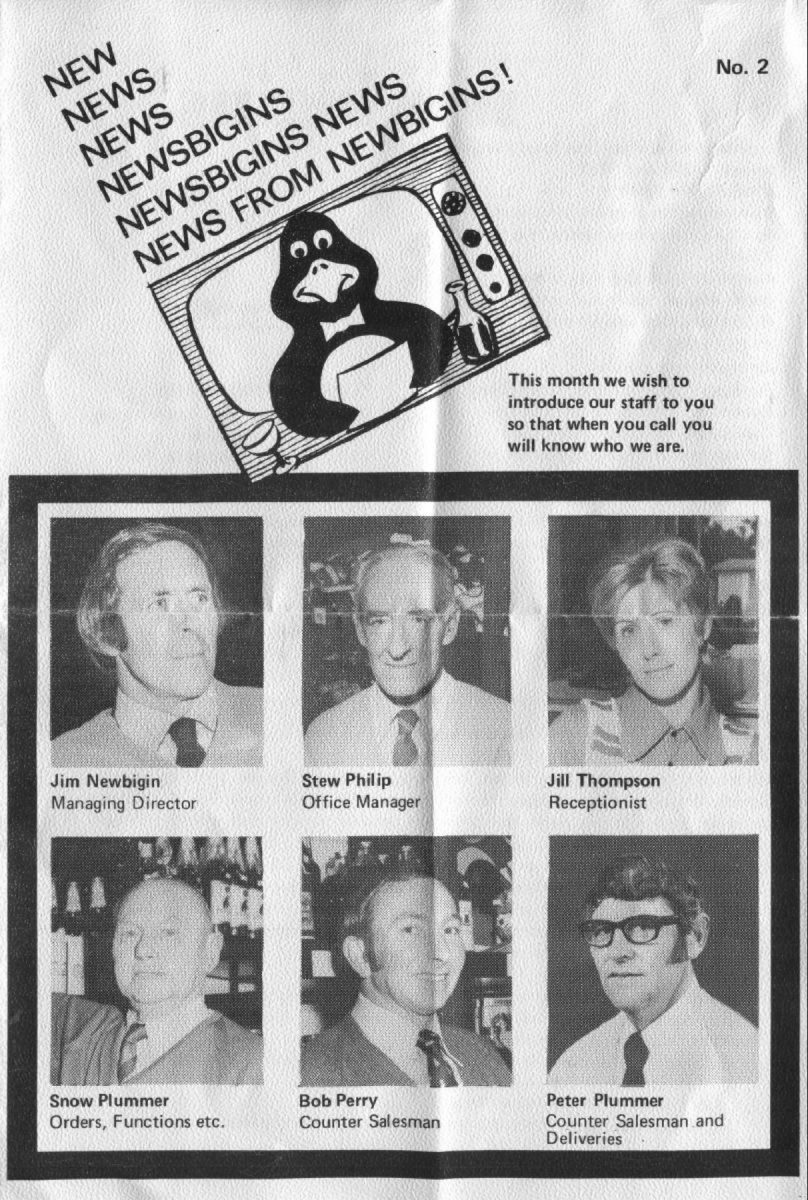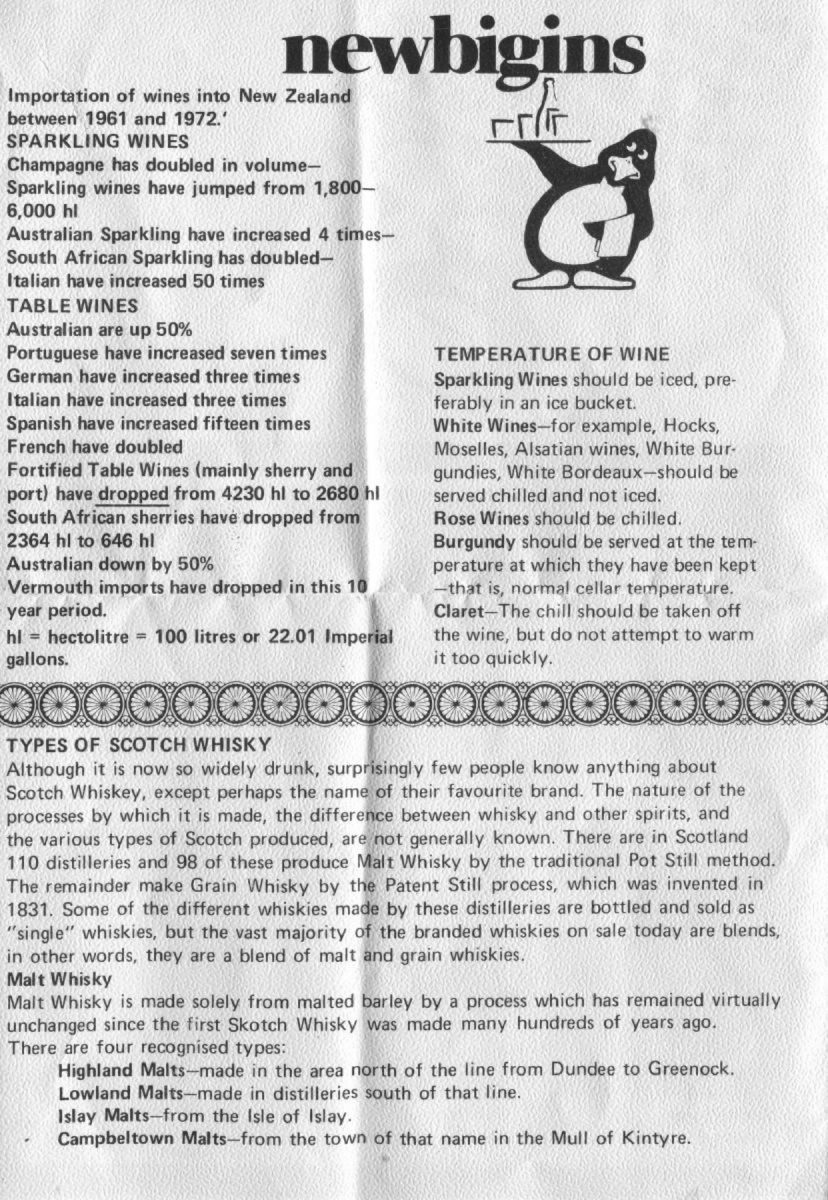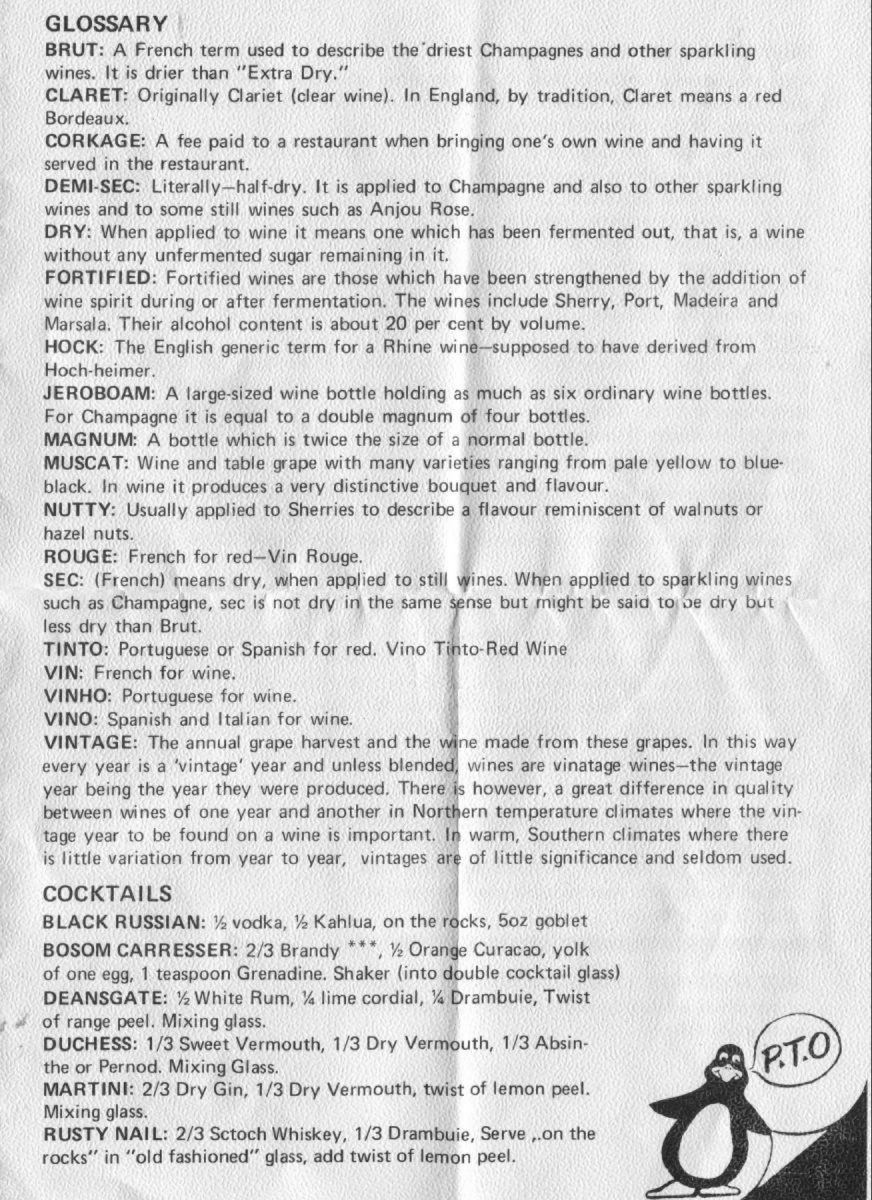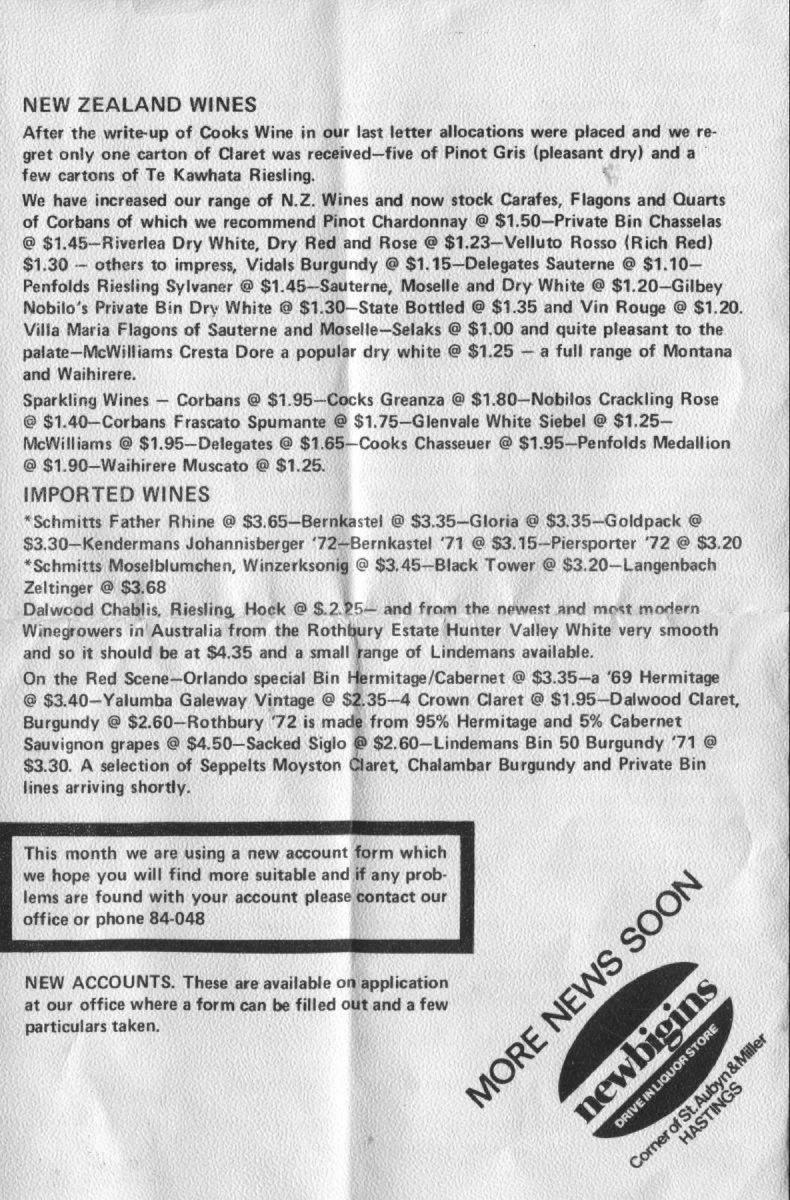newbigins
Importation of wines into New Zealand between 1961 and 1972.
SPARKLING WINES
Champagne has doubled in volume – Sparkling wines have jumped from 1,800 – 6,000 hl
Australian Sparkling have increased 4 times –
South African Sparkling has doubled –
Italian have increased 50 times
TABLE WINES
Australian are up 50%
Portuguese have increased seven times
German have increased three times
Italian have increased three times
Spanish have increased fifteen times
French have doubled
Fortified Table Wines (mainly sherry and port) have dropped from 4230 hl to 2680 hl
South African sherries have dropped from 2364 hl to 646 hl
Australian down by 50%
Vermouth imports have dropped in this 10 year period.
hl = hectolitre = 100 litres or 22.01 lmperial gallons.
TEMPERATURE OF WINE
Sparkling Wines should be iced, preferably in an ice bucket.
White Wines – for example, Hocks, Moselles, Alsatian wines, White Burgundies, White Bordeaux – should be served chilled and not iced.
Rose Wines should be chilled.
Burgundy should be served at the temperature at which they have been kept – that is, normal cellar temperature.
Claret – The chill should be taken off the wine, but do not attempt to warm it too quickly.
TYPES OF SCOTCH WHISKY
Although it is now so widely drunk, surprisingly few people know anything about Scotch Whiskey [Whisky], except perhaps the name of their favourite brand. The nature of the processes by which it is made, the difference between whisky and other spirits, and the various types of Scotch produced, are not generally known. There are in Scotland 110 distilleries and 98 of these produce Malt Whisky by the traditional Pot Still method. The remainder make Grain Whisky by the Patent Still process, which was invented in 1831. Some of the different whiskies made by these distilleries are bottled and sold as “single” whiskies, but the vast majority of the branded whiskies on sale today are blends, in other words, they are a blend of malt and grain whiskies.
Malt Whisky
Malt Whisky is made solely from malted barley by a process which has remained virtually unchanged since the first Skotch [Scotch] Whisky was made many hundreds of years ago.
There are four recognised types:
Highland Malts – made in the area north of the line from Dundee to Greenock.
Lowland Malts – made in distilleries south of that line.
lslay Malts – from the Isle of lslay.
Campbeltown Malts – from the town of that name in the Mull of Kintyre.















Do you know something about this record?
Please note we cannot verify the accuracy of any information posted by the community.